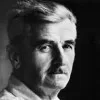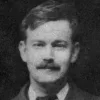In vain do they think themselves innocent who appropriate to their own use alone those goods which God gave in common; by not giving to others that which they themselves receive, they become homicides and murderers, inasmuch as in keeping for themselves those things which would have alleviated the sufferings of the poor, we may say that they every day cause the death of as many persons as they might have fed and did not.
Gregory I (c. 540 - 604) Bishop of Rome, liturgist, Latin Father, Doctor of the Church [Gregorius I, Saint Gregory the Great, Saint Gregory the Dialogist]
(Attributed)
(Source)
Quoted in George D. Herron, Between Caesar and Jesus, ch. 4 "Christian Doctrine and Private Property" (1899).
Quotations about:
communism
Note not all quotations have been tagged, so Search may find additional quotes on this topic.
They don’t ask much of you. They only want you to hate the things you love and to love the things you despise.
Boris Pasternak (1890-1960) Russian poet, novelist, and literary translator
Quoted in “Farewell in a Poet’s Land,” Life Magazine (1960-06-13)
(Source)
On the Communist leadership of the Soviet Union.
This article was an obituary for Pasternak. I have been unable to find a primary source for the quote.
I do not think military readiness, in itself, will defeat Communism. I do not think we can consider the job finished with that. I think it buys us time to do the bigger job. We must demonstrate that it is possible to overcome poverty, misery and decay by democratic means, and that we must ourselves believe, and must show others, that our American tradition of the dignity and liberty of the individual is not a luxury for easy times but is the basic source of strength and security of a successful society.
Jane Jacobs (1916-2006) American-Canadian journalist, author, urban theorist, activist
“No Virtue in Meek Conformity” (1952)
(Source)
Foreword to her response to a State Department Loyalty Security Board interrogatory (1952-03-25). Reprinted in Vital Little Plans (2016).
Fascism, Nazism and Stalinism have in common that they offered the atomized individual a new refuge and security. These systems are the culmination of alienation. The individual is made to feel powerless and insignificant, but taught to project all of his human powers into the figure of the leader, the state, the “fatherland,” to whom he has to submit and whom he has to worship. He escapes from freedom and into a new idolatry. All the achievements of individuality and reason, from the late Middle Ages to the nineteenth century are sacrificed on the altars of the new idols.
Erich Fromm (1900-1980) American psychoanalyst and social philosopher
The Sane Society, ch. 7 (1956)
(Source)
I note in a letter forwarded to me by the Famous Writers School that I have “aided the Communist conspiracy.” If this is indeed true, and I mean this with sincerity and respect, I should turn myself in to any local F.B.I. office. It was not my intention to aid and conspire, when I wrote the TV script, “Carol for Another Christmas,” nor was I remotely interested in propagandizing for the United Nations or for any organization. I was deeply interested in conveying what is a deeply felt conviction of my own. This is simply to suggest that human beings must involve themselves in the anguish of other human beings. This, I submit to you, is not a political thesis at all. It is simply an expression of what I would hope might be ultimately a simple humanity for humanity’s sake.
Rod Serling (1924-1975) American screenwriter, playwright, television producer, narrator
Letter to viewer who complained about the TV movie “Carol for Another Christmas” (1964)
(Source)
Quoted in Anne Serling, As I Knew Him: My Dad, Rod Serling (2013).
A “communist/socialist/progressive” is an oxymoron, like an “atheist/evangelical Christian/Muslim.”
Hendrik Hertzberg (b. 1943) American journalist, editor, speech writer, political commentator
“Ask the Author Live: Hendrik Hertzberg on George Soros,” The New Yorker (19 Nov 2010)
(Source)
All the Sixties were complicated, you know. On the one hand it was funny too, you know; on the other hand it was cruel, you know. The Communists are so cruel, because they impose one taste on everybody, on everything, and who doesn’t comply with their teachings and with their ideology, is very soon labeled pervert, you know, or whatever they want you call it, or counterrevolutionary or whatever. And then the censorship itself, that’s not the worst evil. The worst evil is — and that’s the product of censorship — is the self-censorship, because that twists spines, that destroys my character because I have to think something else and say something else, I have to always control myself. I am stopping to being honest, I am becoming hypocrite — and that’s what they wanted, they wanted everybody to feel guilty, they were, you know… And also they were absolutely brilliant in one way, you know: they knew how effective is not to punish somebody who is guilty; what Communist Party members could afford to do was mind-boggling: they could do practically anything they wanted — steal, you know, lie, whatever. What was important — that they punished if you’re innocent, because that puts everybody, you know, puts fear in everybody.
Jan Tomáš "Miloš" Forman (1932-2018) Czech-American film director, screenwriter, actor, academic
National Security Archive interview (18 Jan 1997)
(Source)
Monsieur, my son is twenty-two years old. If he had not become a Communist at twenty-two, I would have disowned him. If he is still a Communist at thirty, I will do it then.
Georges Clemenceau (1841–1929) French statesman, physician, journalist
(Attributed)
Response to someone who was alarmed about his son being a Communist, as attributed in Bennett Cerf, Try and Stop Me (1944).
This may be the source of the quote also attributed to Clemenceau, “Any man who is not a socialist at age twenty has no heart. Any man who is still a socialist at age forty has no head.” Later, George Seldes attributed to David Lloyd George: "A young man who isn’t a socialist hasn’t got a heart; an old man who is a socialist hasn’t got a head.” François Guizot in the mid-19th Century was said to have said, “Not to be a republican at twenty is proof of want of heart; to be one at thirty is proof of want of head.”
The earliest version of this comes from a public letter by Anselme Polycarpe Batbie (1828-1887), who attributed this to Edmund Burke: "Anyone who is not a republican at twenty casts doubt on the generosity of his soul; but he who, after thirty years, perseveres, casts doubt on the soundness of his mind. [Celui qui n’est pas républicain à vingt ans fait douter de la générosité de son âme; mais celui qui, après trente ans, persévère, fait douter de la rectitude de son esprit.]" This has not been found in Burke's writings.
Variants have also been attributed to Benjamin Disraeli, Dean Inge, George Bernard Shaw, Winston Churchill, Otto von Bismarck, and Bertrand Russell.
Further discussion of this quotation:
Except for the field organizers of strikes, who were pretty tough monkeys and devoted, most of the so-called Communists I met were middle-class, middle-aged people playing a game of dreams. I remember a woman in easy circumstances saying to another even more affluent: “After the revolution even we will have more, won’t we, dear?” Then there was another lover of proletarians who used to raise hell with Sunday picnickers on her property.
I guess the trouble was that we didn’t have any self-admitted proletarians. Everyone was a temporarily embarrassed capitalist. Maybe the Communists so closely questioned by the investigation committees were a danger to America, but the ones I knew — at least they claimed to be Communists — couldn’t have disrupted a Sunday-school picnic. Besides they were too busy fighting among themselves.
John Steinbeck (1902-1968) American writer
Essay (1960-06-01), “A Primer on the Thirties,” Esquire
(Source)
Collected in Esquire: The Best of Forty Years (1973).
A portion of this was paraphrased in Ronald Wright, A Short History of Progress, ch. 5 "The Rebellion of the Tools" (2004):John Steinbeck once said that socialism never took root in America because the poor see themselves not as an exploited proletariat but as temporarily embarrassed millionaires.
That paraphrase has, in turn, been frequently given as a direct quotation of Steinbeck.
Economics is the art of allocating scarce goods among competing demands. The conceit of Marxism was the thought that in Communism, economics would be “abolished”; this was why one did not have to think about the questions of relative privilege and social justice. But the point is that we still have to think about economics, and probably always will. The question, then, is whether we can arrive at a set of normative rules which seek to protect liberty, reward achievement and enhance the social good, within the constraints of “economics”.
One is reminded of the dialectical definition, by the wry Polish intellectual, of capitalism and communism. Capitalism, it is said, is a system wherein man exploits man. And communism — is vice versa.
Daniel Bell (1919-2011) American sociologist, writer, editor, academic
The End of Ideology, Introduction (1961 ed.)
(Source)
Usually quoted with just the last two sentences, and misattributed directly to Bell.
Any power must be the enemy of mankind which enslaves the individual by terror and force, whether it arises under a Fascist or Communist flag. All that is valuable in human society depends on the opportunity for development accorded to the individual.
Albert Einstein (1879-1955) German-American physicist
Press statement, England (15 Sep 1933)
(Source)
Mr. Khrushchev says that Communism, the police state, will bury the free ones. He is a smart gentleman, he knows that this is nonsense since freedom, man’s dim concept of and belief in the human spirit is the cause of all his troubles in his own country. But if he means that Communism will bury capitalism, he is correct. That funeral will occur about ten minutes after the police bury gambling. Because simple man, the human race, will bury both of them. That will be when we have expended the last grain, dram, and iota of our natural resources. But man himself will not be in that grave. The last sound on the worthless earth will be two human beings trying to launch a homemade spaceship and already quarreling about where they are going next.
RIPPER: I can no longer sit back and allow Communist infiltration, Communist indoctrination, Communist subversion, and the international Communist conspiracy to sap and impurify all of our precious bodily fluids.
We repudiate all morality which proceeds from supernatural ideas or ideas which are outside the class conception. In our opinion, morality is entirely subordinate to the interests of the class war; everything is moral which is necessary for the annihilation of the old exploiting social order and for uniting the proletariat. Our morality consists solely in close discipline and conscious warfare against the exploiters.
Vladimir Ilich Lenin (1870-1924) Russian politician, revolutionary, political theorist [b. Vladimir Ilich Ulyamov]
(Attributed)
(Source)
Quoted in René Fülöp-Miller, Lenin and Gandhi (1927).
The urge to distribute wealth equally, and still more the belief that it can be brought about by political action, is the most dangerous of all popular emotions. It is the legitimation of envy, of all the deadly sins the one which a stable society based on consensus should fear the most. The monster state is a source of many evils; but it is, above all, an engine of envy.
Any religion that professes to be concerned with the souls of men and is not concerned with the slums that damn them, the economic conditions that strangle them, and the social conditions that cripple them is a dry-as-dust religion. Such a religion is the kind the Marxists like to see — an opiate of the people.
Martin Luther King, Jr. (1929-1968) American clergyman, civil rights leader, social activist, preacher
Stride Toward Freedom, ch. 2 “Montgomery Before the Protest” (1958)
(Source)
Comfort and habits let us be ready to forgo, but I am not ready for a creed which does not care how much it destroys the liberty and security of daily life, which uses deliberately the weapons of persecution, destruction and international strife. How can I admire a policy which finds a characteristic expression in spending millions to suborn spies in every family and group at home, and to stir up trouble abroad?
Revolutions, as a long and bitter experience reveals, are apt to take their colour from the régime which they overthrow. Is it any wonder that the creed which affirms the absolute rights of property should sometimes be met with a counter-affirmation of the absolute rights of labour, less anti-social, indeed, and inhuman, but almost as dogmatic, almost as intolerant and thoughtless as itself.
R. H. Tawney (1880-1962) English writer, economist, historian, social critic [Richard Henry Tawney]
The Acquisitive Century, ch. 3 “The Acquisitive Society” (1920)
(Source)
Equality, rightly understood, as our founding fathers understood it, leads to liberty and to the emancipation of creative differences. Wrongly understood, as it has been so tragically in our time, it leads first to conformity and then to despotism.
He was afraid that the world struggle today was not of Communism against Fascism, but of tolerance against the bigotry that was preached equally by Communism and Fascism. But he saw too that in America the struggle was befogged by the fact that the worst Fascists were they who disowned the word “Fascism” and preached enslavement to Capitalism under the style of Constitutional and Traditional Native American Liberty. For they were thieves not only of wages but of honor. To their purpose they could quote not only Scripture but Jefferson.
Sinclair Lewis (1885-1951) American novelist, playwright
It Can’t Happen Here, ch. 36 (1935)
(Source)
The promise was that when the glass was full, it would overflow, benefiting the poor. But what happens instead, is that when the glass is full, it magically gets bigger: nothing ever comes out for the poor.
Francis I (b. 1936) Argentinian Catholic Pope (2013- ) [b. Jorge Mario Bergoglio]
In “Pope Francis: I’m Not a Marxist,” TIME (15 Dec 2013)
(Source)
On the "trickle-down" theory.
Communism reduces men to a cog in the wheel of the state. The communist may object, saying that in Marxian theory the state is an “interim reality” that will “wither away” when the classless society emerges. True — in theory; but it is also true that, while the state lasts, it is an end in itself. Man is a means to that end. He has no inalienable rights. His only rights are derived from, and conferred by, the state. Under such a system the fountain of freedom runs dry.
Martin Luther King, Jr. (1929-1968) American clergyman, civil rights leader, social activist, preacher
Where Do We Go from Here: Chaos or Community? (1967)
(Source)
Truth is found neither in traditional capitalism nor in classical communism. Each represents a partial truth. Capitalism fails to see the truth in collectivism. Communism fails to see the truth in individualism. Capitalism fails to realize that life is social. Communism fails to realize that life is personal.
Martin Luther King, Jr. (1929-1968) American clergyman, civil rights leader, social activist, preacher
Where Do We Go from Here: Chaos or Community? (1967)
(Source)
All of you, I am sure, have heard many cries about Government interference with business and about “creeping socialism.” I should like to remind the gentlemen who make these complaints that if events had been allowed to continue as they were going prior to March 4, 1933, most of them would have no businesses left for the Government or for anyone else to interfere with — and almost surely we would have socialism in this country, real socialism, not the kind they define.
The trouble with Communism is the Communists, just as the trouble with Christianity is the Christians.
H. L. Mencken (1880-1956) American writer and journalist [Henry Lewis Mencken]
“Mr. Mencken Sounds Off,” interview, LIFE Magazine (5 Aug 1946)
(Source)
I am unalterably opposed to communism because it exalts the state over the individual and the family, and because of the lack of freedom of speech, of protest, of religion, and of the press, which is the characteristic of totalitarian states. The way of opposition to communism is not to imitate its dictatorship, but to enlarge individual freedom, in our own countries and all over the globe. There are those in every land who would label as Communist every threat to their privilege. But as I have seen on my travels in all sections of the world, reform is not communism. And the denial of freedom, in whatever name, only strengthens the very communism it claims to oppose.
Robert Francis Kennedy (1925-1968) American politician
“Day of Affirmation,” address, University of Capetown, South Africa (6 Jun 1966)
(Source)
The whole notion of loyalty inquisitions is a natural characteristic of the police state, not of democracy. Knowing his rule rests upon compulsion rather than consent, the dictator must always assume the disloyalty, not for a few but of many, and guard against it by continual inquisition and liquidation of the unreliable. The history of Soviet Russia is a modern example of this ancient practic. The democratic state, on the other hand, is based on the consent of its members. The vast majority of our people are intensely loyal, as they have amply demonstrated. To question, even by implication, the loyalty and devotion of a large group of citizens is to create an atmosphere of suspicion and distrust which is neither justified, healthy, nor consistent with our traditions. […] I must, in good conscience, protest against any unnecessary suppression of our ancient rights of free men. Moreover, we will win the contest of ideas that afflicts the world not by suppressing those rights, but by their triumph. We must not burn down the house to kill the rats.
Adlai Stevenson (1900-1965) American diplomat, statesman
Veto Message, Illinois State Senate Bill 102 (1951-06-26)
(Source)
The Broyles Bill would have required all public workers, teachers, and officials, as well as candidates for office to sign loyalty oaths. Its veto by Stevenson, as Illinois Governor, was widely used by his political enemies during the Red Scare of the era.
This quote is widely misidentified as a more generic comment condemning the federal McCarran Internal Security Act of 1950. I've been unable to find any primary source connecting this quotation to that event.
It is often elided and paraphrased down, e.g.:The whole notion of loyalty inquisitions is a national characteristic of the police state, not of democracy. I must, in good conscience, protest against any unnecessary suppression of our rights as free men. We must not burn down the house to kill the rats.






























